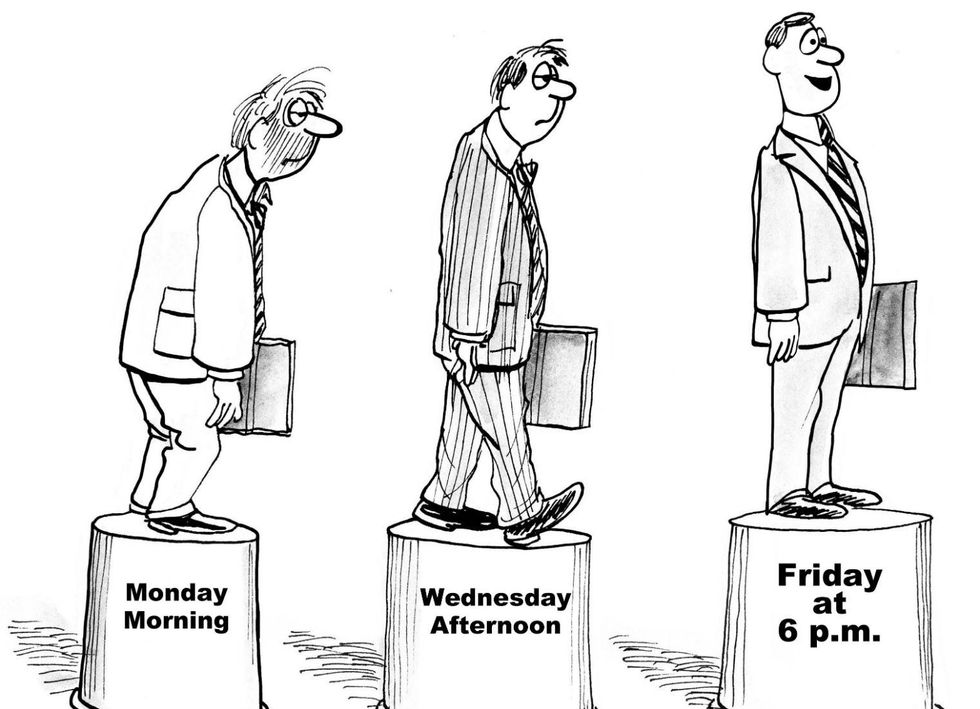Celebrities

Shorter weeks can make staff more productive and happier.
You're back in the office after a bank holiday, which means you're probably already counting down to the weekend and wondering why every week can't be a four-day affair.
Most people in the UK work a 9-5, five-day week, but research has shown that this structure is not the healthiest or most productive way to work.
Working long hours increases the risk of having a stroke, causes raised blood pressure and stress while three day weekends can allegedly improve the environment, staff wellbeing and productivity.
Some countries and companies have already cottoned on to this and experimented with alternative working hours, but did they work out for the best?
The 4 day week
Amazon isn't renowned for its great working environment, but it will soon be experimenting with a 30-hour working week for select employees.
Leading doctors have said that switching to this model would help combat work-related stress and reduce unemployment. It was experimented with in Sweden last year and as a result the workforce had more energy. This meant a reduction in sickness and increased productivity.
6 hour-days
Sweden, once again, led the way with work/life balance when it implemented six-hour days to increase productivity and workforce happiness. The ethos behind the change was to allow employees to have more time to enjoy their private lives and therefore be happier and more focused at work.
Employers - including retirement homes and hospitals - are believed to be experimenting with the model until the end of the year to determine whether the cost of hiring staff to cover the hours lost is worth the improvements to patient care and boosting of employees’ morale.
4 days, 40 hours
When the recession hit in 2008, the Republican governor of Utah, Jon Huntsman, was tasked with saving public money. Instead of cutting public spending or pushing austerity he changed the working week to 40 hours in 4 days.
Huntsman realised that if public sector workers worked a shorter week he could close public buildings for a day so, with a month's notice, 18,000 of Utah's 25,000 person workforce were put on a four-day week and 900 public buildings were closed on Fridays. While the regime only lasted until autumn 2011, it saved the state millions and staff well-being increased with the longer weekend and shorter, easier commuting outside rush hour. Carbon emissions were also cut by 14 per cent.
3 day week
Research shows that a part-time job, or one that is three days a week, keeps the brain stimulated, while avoiding stress and exhaustion. Especially if you are over 40.
The study, carried out by the Melbourne Institute of Applied Economics and Social Research at the University of Melbourne, looked at 6,500's people's (3,000 men and 3,500 women over 40) work habits and brain tests. Each participant was asked to read words aloud, recite lists of numbers backwards and match letters and numbers under time pressure - those who worked about 25 hours a week achieved the best scores.
Listen up UK government. The shorter week seems to have many benefits for both employer and employee, so why not make every week a bank-holiday? In the mean time, we'll be job hunting in Sweden...
More: The most productive countries in the world also have the shortest work days
More: Reading a book for a few hours a week can add two years to your life
Top 100
The Conversation (0)















